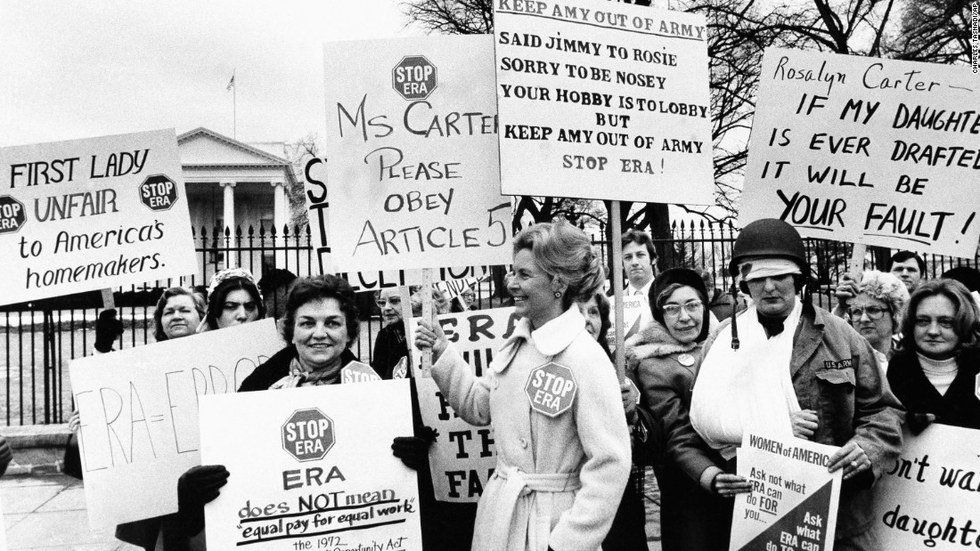I had just taken refuge from the cold January wind in a little café near Georgetown University. Across the small space sat a group of women in their mid-60s, excitedly debating about the benefits of same-sex education in the modern world. They were clearly long-time friends, and from the way that they spoke to the server who came to pick up their baskets, now containing only crumbs, clearly came to this place often. Their energy is contagious and fills the entirety of the café.
At one point, a woman who has been controlling the ebb and flow of the discussion sets her coffee cup down and leans over it, poising her words to carry weight across the table.
“I think young girls today take feminism for granted,” she says. For a brief moment, I make eye contact with her, my mouth agape, unsure if I should interject. I don’t.
By now, every semi-politically engaged woman and her mother has read about or seen the interview Bill Maher did with prominent feminist Gloria Steinem in February; by now, they’ve all heard about Madeline Albright's remarks at a Hillary Clinton rally that implied that women who don't support Hillary Clinton have a "special place in hell". Though these specific blunders of the two cultural icons are considered old news, Kim Kardashian's recent nude photo has once again brought feminism to the forefront of everyone's minds. And though I didn't interject in that café, I will now.
I am grateful beyond measure to the feminists who came before me. Without them, the movement that I hold dear to my heart and consider a key part of my identity would not have lasted past the '90s. But I am tired of them facilitating the conversation. I am exhausted by how they dictate what is or isn't really "feminist" today. I am stunned that there is a group of people so far removed from the current wave of feminism, yet still think it is within their power to assume that young women can't be passionate about political revolution without being in it for "the boys". That there are those who feel the need to look at any woman loving and celebrating her body in her own way (be it nude photo-sharing or proud burqa-wearing) as counter-intuitive to the movement.
The women who say that younger feminists need to "fall in line," or that the fourth wave is ungrateful or rude or a disgrace to feminism are only serving to make this generation angry and indignant. Many of us idolize women like Steinem and Albright, and therefore have a hard time qualifying how women who fought for a woman's right to be anything she wants could say that feminists can only act a certain way.
The fourth wave of feminism is a beautiful, vibrant, inclusive space. Feminists around the world are working to solve a multitude of problems, from the exclusion of female from education in many parts of the world, to rape culture, to the ever-shifting identity of womanhood. We are building on our siblings' work, just as they built on that of the generation of feminists before them. But giving us a platform to speak on does not mean older feminists are allowed to control the rhetoric. Many active feminists today are people coming into their own: we are college students attending rallies, young professionals leading seminars on equality, and high school students finding a voice. We deserve for that voice to be ours and ours alone.
I am grateful, but as Susan B. Anthony said, "Gratitude never radicalized anybody." Let the young feminists of today have our chance to shape and grow the movement. We recognize and value the contributions of the waves that have come before us. But it's our turn. Please, pass the torch.





















